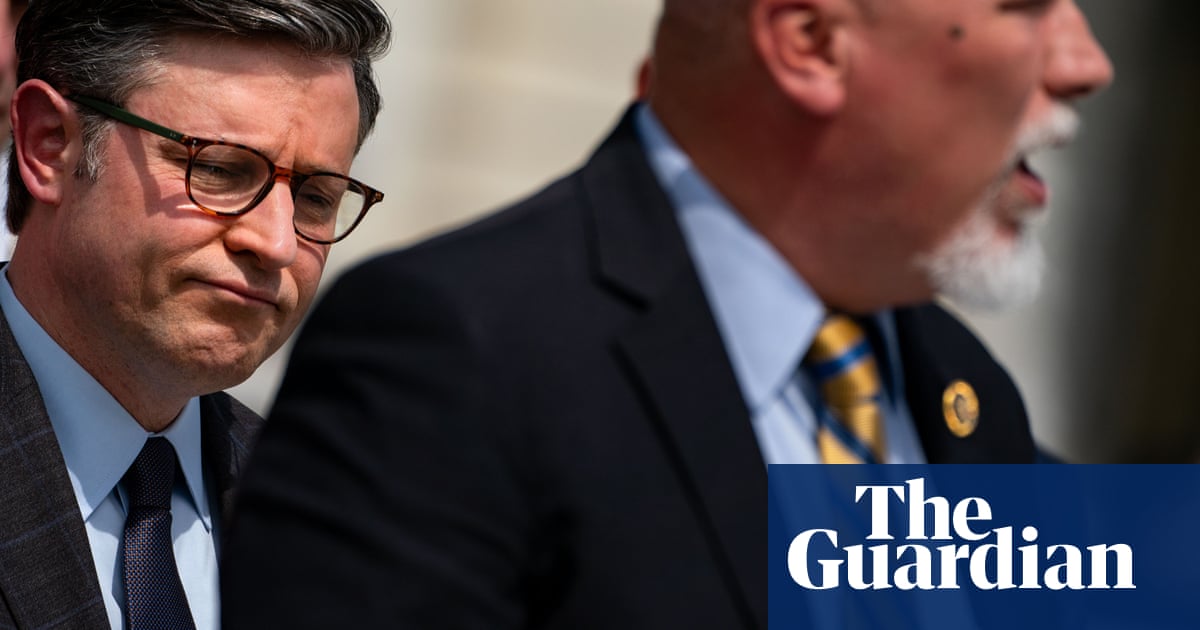House Turmoil: Trump’s Legislative Ambitions in Jeopardy
Rightwing lawmakers dealt a significant blow to Donald Trump’s signature legislation on Friday, effectively derailing its passage through a key committee in the House of Representatives. This setback raises profound questions about Republican unity and the future of a massive bill that has been in the works for weeks.
Key Features of the Proposed Legislation
Dubbed the “one big, beautiful bill,” this ambitious proposal aims to extend tax cuts from Trump’s first term and fund mass deportations of undocumented immigrants. Additionally, it seeks to fulfill a popular campaign promise to eliminate the taxation of tips and overtime. To fund these initiatives, Republicans suggested cuts to crucial federal safety net programs like Medicaid and the Supplemental Nutrition Assistance Program (SNAP).
Committee Hearing: A Division Emerges
During a House budget committee hearing intended to advance the legislation, a coalition of four Republican members from the far-right Freedom Caucus banded together with the Democratic minority to block its progress. Their contention? The bill does not propose sufficient cuts to federal spending or programs they oppose. Representative Chip Roy from Texas succinctly expressed the group’s position: “This bill falls profoundly short. It does not do what we say it does, with respect to deficits.”
Adding to the complexity, Pennsylvania’s Lloyd Smucker initially voted in favor of advancing the bill but later reversed his decision, claiming it was a procedural maneuver aimed at allowing for future reconsideration.
Pressures Mount on House Leadership
This setback intensifies the pressure on House Speaker Mike Johnson, who had set Memorial Day as a target for getting the legislation through the House and on to the Senate. Trump himself has made it clear that he hopes to have the bill on his desk by the Fourth of July. Earlier on Friday, he took to Truth Social to urge Republicans to unify behind the bill, criticizing any dissent as “grandstanding.”
A Fragile Path Forward
In a bid to regain momentum, the budget committee announced plans to reconvene on Sunday night, giving Johnson a brief respite to negotiate with harder-line members. The GOP faces an additional challenge; they aim to pass this bill using budget reconciliation—a method allowing them to bypass potential Democratic filibusters in the Senate. However, internal divisions regarding the bill’s content threaten to stymie these efforts.
Fiscal Responsibility Concerns
Key figures in the Freedom Caucus insist on significant reductions in government expenditures, particularly in light of spending increases enacted in response to the COVID-19 pandemic. Representative Andrew Clyde of Georgia articulated this focus, asserting the existing bill does not adequately address fiscal responsibility.
He stressed a commitment to “rightsizing government” and expressed disappointment that the proposal fails to deliver on the transformative changes promised to Americans. They are calling for deeper cuts to Medicaid, yet many Republicans feel uneasy about making drastic reductions to healthcare services vital for low-income and disabled citizens.
Dissenting Voices Within the GOP
Amidst this fractious environment, certain Republicans representing blue states—such as those from New York and New Jersey—are pushing for increased deductions for state and local taxes. They argue that such adjustments would provide essential relief for their constituents. However, these demands further complicate an already delicate balancing act, as including them would exacerbate the bill’s costs, irritating fiscally conservative factions within the party.
A Narrow Margin for Error
With a slim majority that allows for no more than three dissenting votes, Johnson faces immense pressure to appease various factions within the party. This precarious situation has turned the path to passing the bill into a tightrope walk, requiring careful negotiation and a willingness to compromise.
As discussions continue and deadlines loom, the Republican Party finds itself at a crossroads, with the fate of a key legislative initiative hanging in the balance.


